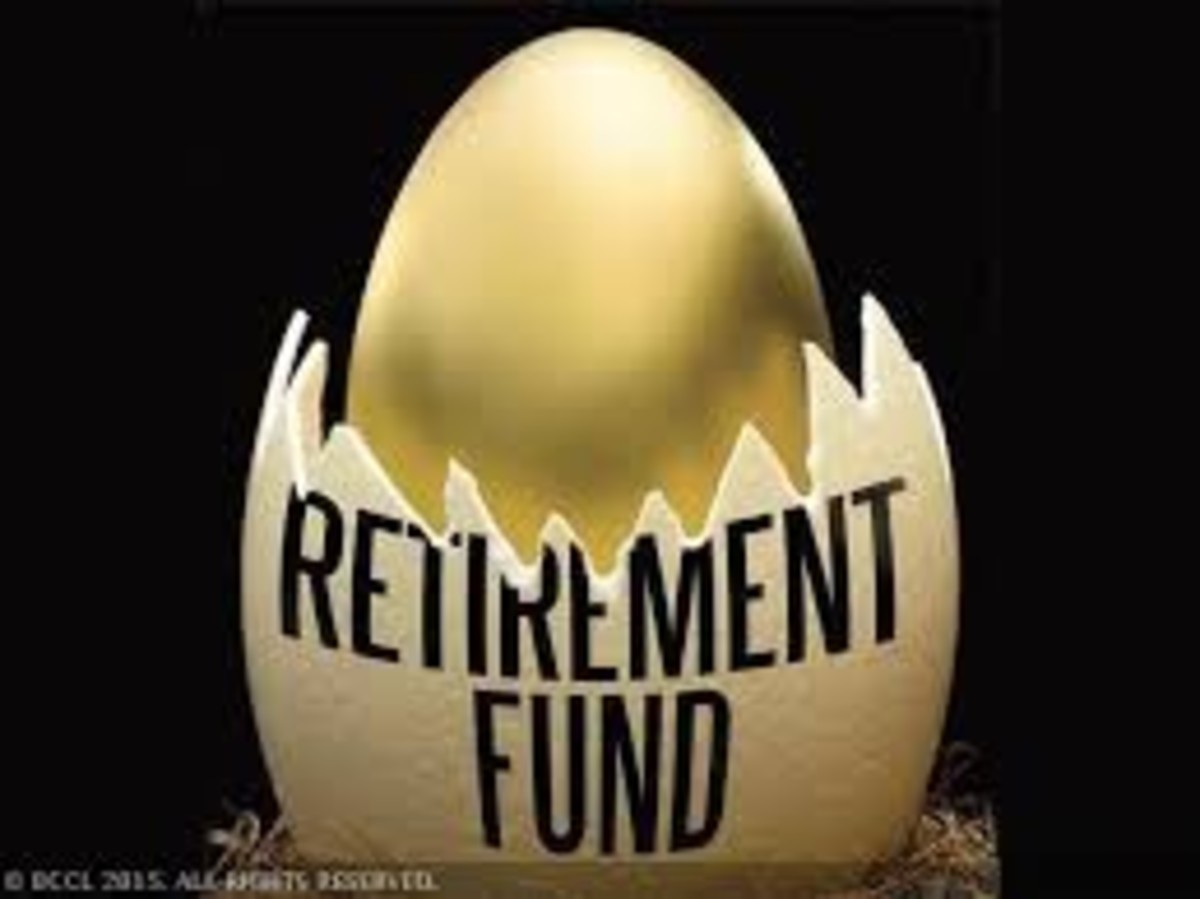Planning For Retirement Or Ten Reasons to Continue Working
Introduction
The UK government’s proposal to do away with mandatory retirement at age 65 should mean that people will have more choice about the age at which they retire (Employees to pick retirement age Financial Times July 30th 2010). In practice many of us may have to continue working past this for financial reasons. If you are fortunate enough to have a genuine choice this article should help you to make up your mind since it takes a humorous look at some of the factors that you may want to take into account before taking the plunge.
1. How can you ever decide that you have got enough money to fund your retirement?
All these articles written by companies trying to sell pensions or other financial services insist that in order to decide whether retiring is feasible you must begin by working out what your monthly and annual expenditure will be once you’ve stopped working. If, like me, you have never even got to grips with your current outgoings how likely are you to even attempt this? In any case, how can I decide whether I'll be able to persuade my husband to give up his Sky subscription (which he uses to channel hop and watch junk films whilst I’m doing improving things in the other room). Will he continue buying those cases of French wine in spite of my protests - simply hiding them in the cellar? Will I be able to resist the temptation to indulge in one-click shopping of the latest novels on Amazon now that I have time to read all the reviews. A key point here, if you don't know what you are going to do on a daily basis when you retire, how can you possibly know how much money you’ll need to fund this indeterminate life-style? And looking further ahead into the distant mostly depressing future, should you need nursing or residential care how are you going to be able to afford this, yet have enough money left over to leave something to your children? Surely it would be safer to continue working?
2. Can you really bear to give up work?
Right now you may think you hate your job but do you want to spend the rest of your life answering questions about what you do for a living in the past tense? If you retire at 60 say and look young for your age you could be fielding these questions for a decade or more. Does ‘I used to be a teacher/ manager / accountant’ carry the same weight and status as being one right now? (This may work the other way round for some people such as lawyers, tax inspectors whose jobs may bring them status but not popularity.) If not, how are you going to stand out from the rest of the grey-haired crowd? And a frightening thought, does this mean that in retirement ‘climbing the corporate ladder’ and the qualities that go with this become less important than other attributes and achievements such as skills in nurturing relationships?
3. Do you want to do all those household and gardening jobs that you've avoided for years but promised to tackle once you’ re retired?
This is one of the primary reasons why my husband, aged almost 70, is still working, or at least going off to the office every day (where, I suspect, he passes most of his time losing money on shares and talking to his mates on the phone rather than generating income). I can personally vouch for the fact that if you didn’t get round to doing these chores when you were a busy but organised person in full-time work mode you won’t do so when you’re retired. Of course you can always choose not to do them then either but then you will have to live with the daily guilt. You also need to take your partner’s life-style into account here: if he’s still working and you’re not its very likely you’ll end up doing a lot more than your fair share of jobs around the home.
4. Do you have a realistic plan for filling all this spare time?
For example, can you cope with the idea of reading books and engaging in other self-indulgent pastimes during what used to be office hours? This may be a particular issue for women who have been used to slotting in all the activities required to run a household around the working day. Shifting these into the daytime will probably make you less tired but won’t leave you with much of a sense of achievement. On the other hand will you be sufficiently motivated to do things such as voluntary work that might, in fact, help you to feel that you’re ‘making a difference’? And wouldn’t this type of regular commitment prevent you enjoying the freedom that you’re entitled to in retirement such as swanning off to the house in Spain? (By the same logic does this mean that we would need to get rid of the cat?)
5. How do you feel (honestly) about spending all this time with your partner?
Remember retirement is supposed to be a time of doing things together (think adverts featuring grey-haired but slim, elegant and youthful looking older people walking along the beach hand in hand). But what if there aren't any things that you want to do together? What if your husband wants to spend four hours every day reading the Daily Telegraph and/or sleeping (unless you monitor his activities carefully you may not know which of these he is doing) whilst you go off to every U3A group under the sun? (University of the Third Age for those not yet in the know) Does this matter? Perhaps before taking the plunge it would be worthwhile checking to see if there are any statistics available about marital breakdown, post- retirement?
6. Do you really want to go on that world cruise/ whale/seal/penguin watching trip to the Antarctic that your husband has been keen on for years?
You’ve been putting him off on the grounds that you never have enough days’ holiday left to do this but now that you’re retired…. Is a tendency to sea-sickness still an acceptable excuse or are boats these days much more stable than the one you went on to Istanbul on a school cruise 45 years ago?
7. Do you want to get saddled with the grandchildren on a regular basis?
As all grandparents are supposed to be besotted with their children’s offspring what excuse are you going to give for not offering to child-mind three times a week - now that you’re retired? Some readers might be horrified by the suggestion that any grandparent would want to skip this wonderful opportunity. However recent research has apparently shown that having friends nearby is more likely to make for happiness and contentment than close proximity to grandchildren. Even if you don't have any of your own, retirement affords many more opportunities for those who do to bore you with photos and accounts of their amazing accomplishments.
8. If you retire will you turn into your mother (or father) as they were in old age?
It's bad enough after a night of insomnia to look in the mirror and see your mother looking back at you (at a time when she certainly wasn’t in her prime.) It’s quite another to fritter away the entire morning getting ready to go out and worrying about whether something will go wrong with the simple travel arrangements that you have in mind to go somewhere that it doesn't really matter whether you get to or not. There seem to be two problems here:
· You pad out the little you have to do so that it occupies the whole of the day: in other words you become extremely inefficient at time management;
· Tasks which you would have taken in your stride during your working life suddenly become the source of huge anxiety. In the context of decision making about things that matter in the real world of work, arriving half an hour late at a friend’s house doesn’t actually matter that much, does it?
9. If you retire will this accelerate the onset of dementia?
There have been lots of columns in the news lately about how important it is to keep working in order to maintain an active mind and keep depression at bay as the Guardian Newspaper reported on 18th May 2009 (Delaying retirement could prevent early dementia say scientists). (Could it be the government that is secretly planting these articles in order to sugar the pill of having to work longer to claim our old age pensions?) This issue is likely to be of considerable concern to those of you who are convinced that you’re already suffering from the disease (chronic forgetfulness, muddling up names, people, objects, words, inability to add up your expenses – I could go on). In particular you definitely need to consider whether you are happy to spend half an hour a day (or much longer if you're not very good at them) on crosswords or Suduko - several studies report that 'A crossword a day may keep memory loss at bay'. These appear to be the main strategies recommended for counteracting the tendency of our brains to wind quietly down in retirement so if they don't appeal to you wouldn't it just be simpler to keep on working? And you'll get paid too.
10. Finally, once retired, will you be able to resist embarking on that novel or short story that you’ve dreamt about writing since a child?
In fact do you know anybody who has retired recently, assuming they are not functionally illiterate (though I am not sure this a real barrier any more) who does not believe that ‘there is a book in them’ and that ‘they have a story to tell’? Increasing opportunities for self publishing books of the old-fashioned hard copy type as well as on the Internet have encouraged this belief. Within the last three years both a brother-in-law and my husband's ex-wife have self published books of the hardcopy variety – in one of these cases of the excruciatingly badly written variety.
Don't even think about doing it! In order to set pen to paper and to keep at it you’ll need a burning desire to write. You may think that you have this but where was it during your working life? Most novelists produce their first book (which is not the same as getting it published) in their twenties or thirties at the latest – very few leave it until after their sixtieth birthday. I can assure you from personal experience that starting and continuing a piece of fiction is much much harder than writing this sort of article/ opinion/personal experience piece. You will waste hours feeling guilty about not getting started. And should you actually manage to do so you will be appalled by the banality of what you have produced - unless you are one of the very few who are exceptionally talented. All this pain can be avoided simply by not retiring.
In the light of all these arguments you might assume that I couldn’t possibly have retired but you would be wrong. I retired, without having thought through any of this, because I hated the work that I was doing and was too lazy to start looking for something else. And how am I tackling these issues? I'll leave that for another piece - since writing is one of the strategies I’m pinning my hopes on for surviving post-work!
- Surviving Retirement
If you enjoyed this article read my blog which tracks my progress in developing an interesting and fulfilling life 'post-work'. It's intended to be both entertaining and useful to others facing similar challenges.








